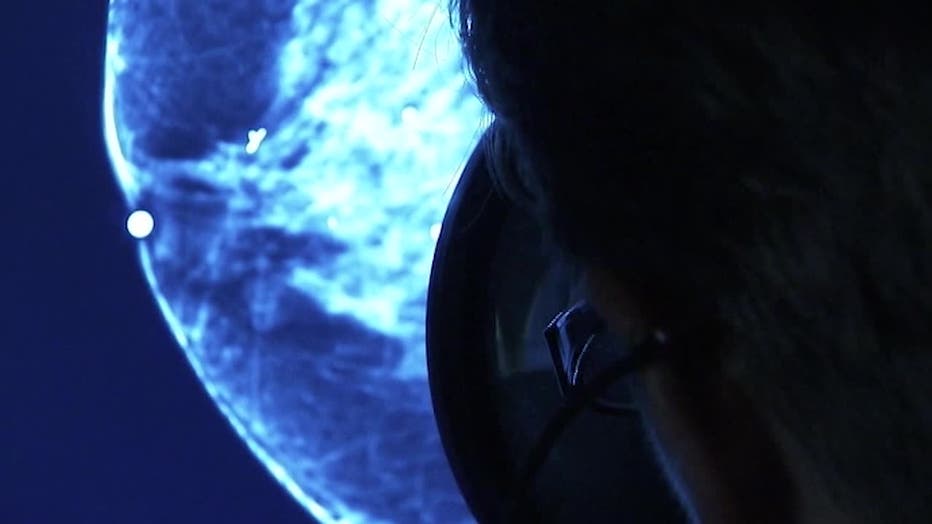Surgeon discusses breast cancer risk assessment tools Olivia Munn credits with saving her life

Do you know your risk for breast cancer?
Actress Olivia Munn says she had a normal mammogram in February 2023, but two months later, she says she was diagnosed with an aggressive, fast-moving breast cancer. Munn believes her cancer was detected because her doctor performed a breast cancer risk assessment.
ATLANTA - On her Instagram feed, Olivia Munn told followers she was still months away from her next scheduled mammogram, when her doctor decided to calculate her Breast Cancer Risk Assessment Score.
"The fact that she did save my life," the 43-year-old actor wrote.
The Gail Model and the Tyrer-Cuzick breast cancer risk calculators are two of the tools used by healthcare providers to estimate a person's risk of developing breast cancer.
Munn says her breast cancer risk assessment score indicated she had a 37% lifetime risk of developing breast cancer.
She says that elevated score led her doctor to recommend Munn get a breast MRI, which led to an ultrasound and then a breast biopsy.
FOUR YEARS AFTER STAGE 4 BREAST CANCER DIAGNOSIS, GEORGIA WOMAN IS NOW CANCER-FREE
Munn says she was diagnosed with Luminal B breast cancer, a more aggressive, fast-moving cancer, in both breasts.
She underwent a double mastectomy a month after her biopsy.
These risk assessment tools are available online, but City of Hope Atlanta breast surgeon Dr. Anita Johnson does not recommend trying to calculate your score on your own.
What is a breast cancer risk assessment?
"What a patient does with that information, it is sometimes alarming, because they actually don't know what to do," Johnson says.
She recommends having your doctor calculate your breast cancer risk assessment score for you.
It can include a lot of factors.
"You're putting in your age," Johnson says. "You're putting in when you started your menstrual cycle, or you're putting in your personal history. Some patients have a history of radiation to the chest, a previous history of any types of cancer."

Your doctor may also ask whether you've given birth, and, if so, at what age, whether you have had previous breast biopsies, or have a family history.
"Women who have first and second-degree relatives with breast or ovarian cancer, as well," Dr. Johnson says. "Another red flag is a male (relative) that has breast cancer. So, you put in all of that information."
The tests typically score the risk of developing breast cancer over the next five years or over your lifetime.
If your score is greater than about 20% to 25%, you may be at elevated risk.
"Once your physician, your primary care physician, knows that they will either recommend you to see a high risk provider, or they will provide you with additional screening."
Johnson recommends seeing a high-risk specialist, who can break down what your score means, and your options.
"We can not only provide you guidance towards screening, but we also offer medications that may lower your risk, as well as some patients who are at extreme risk may be recommended for surgical intervention," she says. "So, just know your numbers. Know your risk factors."

